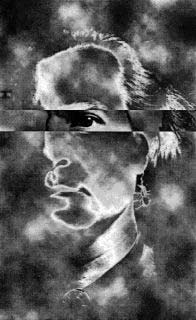
Edgar Silex
Poetry
Edgar Gabriel Silex is the author of two poetry collections from Curbstone. He has received fellowships from the National Endowment for the Arts, the National Endowment for the Humanities, and the Maryland State Arts Council. He lives in Laurel, Maryland.
Vision
I once helped build the eyes that watch the world
eyes that see through heaven’s clouds
eyes that see you wandering in the dark
that watch you sleeping behind your walls
or wherever you may try to hide
I wrote the telemetric language of their sight
that gives them their intelligence
and I calculated all the costs of harnessing those eyes
to keep them focused on their tasks
through cold and dark their lives dependent on the sun
that shines upon the universe like an unblinking gaze
and though they mostly see the evil
and the tragedy befalling man and Earth
they also search the galaxies for distant promises
the earth for the riches to be found by mining deep within
for treasures that enrich the few
those eyes lock upon the eyes of storms
that sweep away those who cannot stand
against indifferent force and in the offices of life
in windowless and soundproof rooms
I tested those eyes against my own suspicious pair
sine-ing and cosine-ing equating and equivocating
and what I witnessed through those eyes
turned me against the god man envisions in himself
that gives him his belief that he can see through dark
see under the clouds under the earth
see into the distant origin of man and Earth
with eyes that really do not see that far at all
that turns the viewer into a savage god
who grows suffering into agony
who makes an industry of desperation
and sees only unclaimed dominions
and not the blue monastery the mother or the cradle
nor the emptiness abounding
and the only promise that I saw through those eyes
I once helped build to watch the world
was the promise of man’s blindness
eyes that see through heaven’s clouds
eyes that see you wandering in the dark
that watch you sleeping behind your walls
or wherever you may try to hide
I wrote the telemetric language of their sight
that gives them their intelligence
and I calculated all the costs of harnessing those eyes
to keep them focused on their tasks
through cold and dark their lives dependent on the sun
that shines upon the universe like an unblinking gaze
and though they mostly see the evil
and the tragedy befalling man and Earth
they also search the galaxies for distant promises
the earth for the riches to be found by mining deep within
for treasures that enrich the few
those eyes lock upon the eyes of storms
that sweep away those who cannot stand
against indifferent force and in the offices of life
in windowless and soundproof rooms
I tested those eyes against my own suspicious pair
sine-ing and cosine-ing equating and equivocating
and what I witnessed through those eyes
turned me against the god man envisions in himself
that gives him his belief that he can see through dark
see under the clouds under the earth
see into the distant origin of man and Earth
with eyes that really do not see that far at all
that turns the viewer into a savage god
who grows suffering into agony
who makes an industry of desperation
and sees only unclaimed dominions
and not the blue monastery the mother or the cradle
nor the emptiness abounding
and the only promise that I saw through those eyes
I once helped build to watch the world
was the promise of man’s blindness
“ The poem arises from my experiences building the harnesses and radars for satellite systems. And there are so many wonderful things that can be said, but I think I'll refrain and let the poem speak for itself. ”
